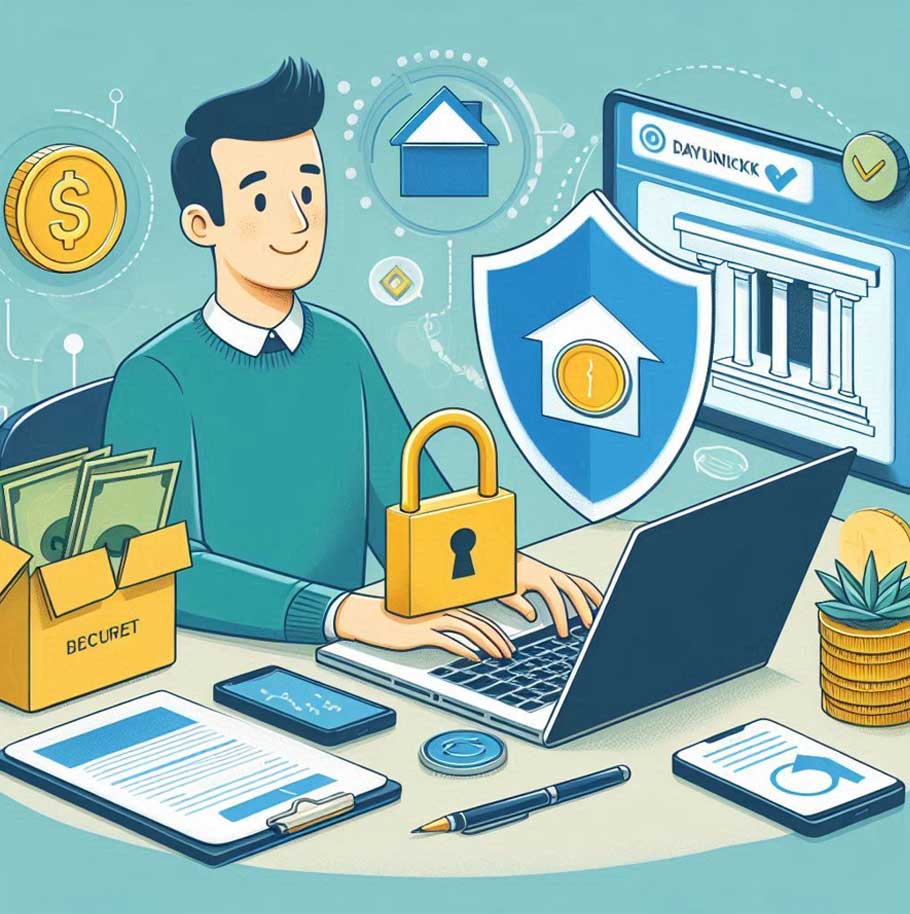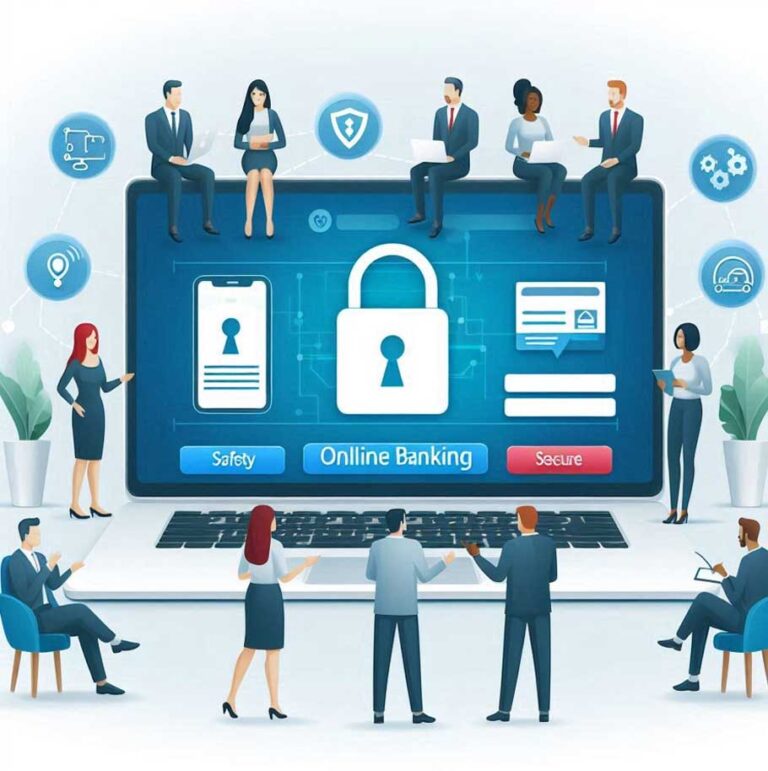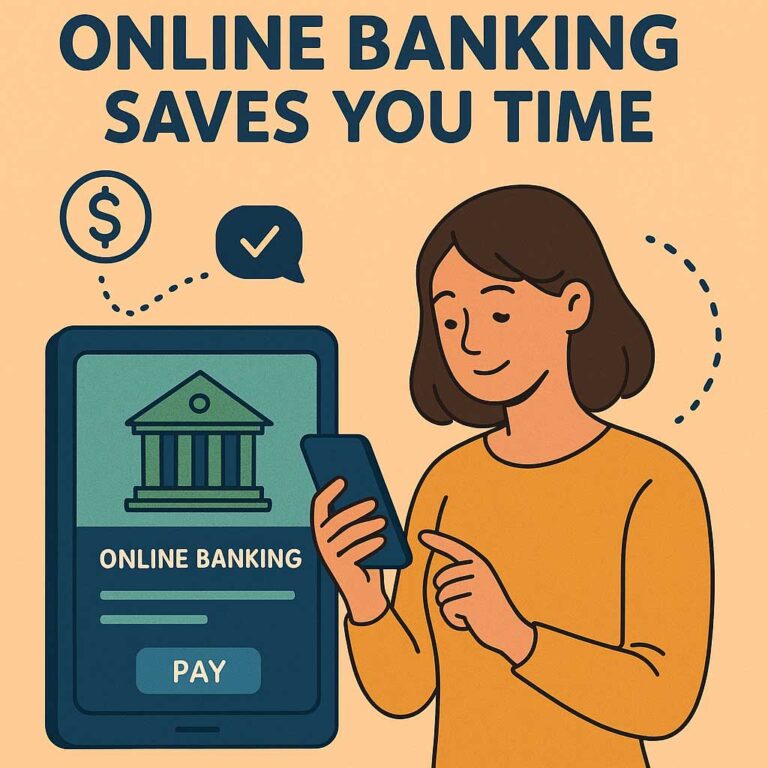Can You Trust Online Banks? A Guide for First-Time Users
Introduction
With the rapid growth of digital banking, many people are wondering: Can you trust online banks? Traditional banking customers accustomed to in-person transactions may hesitate to switch due to concerns about security, reliability, and access to funds. However, online banks have grown significantly, offering advanced security, lower fees, and innovative features.
In this article, we explore whether you can trust online banks by comparing them to traditional banks, highlighting their benefits, addressing security concerns, and discussing the future of digital banking.
Benefits of Online Banks
For those new to digital banking, understanding the advantages of online banks is crucial. Here are some of the most compelling reasons why many customers are making the switch:
1. Convenience and Accessibility
One of the main reasons people ask, can you trust online banks? is the perceived lack of accessibility. However, online banks offer 24/7 account access through mobile apps and websites, allowing users to manage finances anytime, anywhere. Unlike traditional banks, there are no physical branch hours to worry about.
2. Lower Fees and Higher Interest Rates
Online banks typically have lower operating costs since they don’t maintain physical branches. This allows them to pass savings on to customers in the form of:
- No or low monthly fees
- Higher interest rates on savings accounts
- Fewer overdraft and transaction fees
3. Innovative Financial Tools
Many online banks integrate advanced financial tools, including:
- Automated savings plans
- AI-driven budgeting and expense tracking
- Real-time transaction alerts
These features help users make better financial decisions and manage their money more effectively.
4. Global and Seamless Transactions
For frequent travelers or those making international transactions, online banks provide seamless digital services. Many offer competitive exchange rates, low transfer fees, and easy mobile transactions, making banking more efficient globally.
Security Concerns and Measures
A major question among first-time users is: Can you trust online banks to keep your money safe? Security concerns are valid, but online banks use sophisticated technology to protect customer funds and data. Here’s how:
1. Advanced Encryption and Data Protection
Online banks employ high-level encryption, similar to that used by traditional banks, to secure transactions and prevent cyber threats. They also use:
- Two-Factor Authentication (2FA): Adds an extra layer of security by requiring a secondary verification method.
- Biometric Login: Many online banks support fingerprint or facial recognition for added protection.
2. FDIC and Equivalent Protection
Most reputable online banks in the U.S. are insured by the Federal Deposit Insurance Corporation (FDIC), meaning deposits are protected up to $250,000. Similar protections exist in other countries, ensuring customer funds remain secure in case of financial instability.
3. AI-Powered Fraud Detection
Online banks use artificial intelligence to monitor transactions and detect unusual activity. Customers are alerted to any suspicious behavior, preventing unauthorized transactions before they occur.
4. Customer Support and Dispute Resolution
A common concern is the lack of physical branches for dispute resolution. However, online banks compensate by offering:
- 24/7 customer support via chat, email, or phone
- In-app dispute resolution features
- Quick response times for fraud or account issues
Traditional Banks vs. Online Banks: Which is More Trustworthy?
While traditional banks have been around longer, that doesn’t necessarily make them safer. Let’s compare their trust factors:
| Feature | Traditional Banks | Online Banks |
|---|---|---|
| Physical Branch Access | Yes | No |
| Customer Support | In-person & digital | Digital only |
| Security Measures | High | High (often more advanced) |
| Fees | Higher | Lower |
| Interest Rates | Lower | Higher |
| Financial Tools | Limited | Advanced digital tools |
From this comparison, online banks offer equal or greater levels of security while providing better interest rates and lower fees. The key factor in trusting online banks is choosing a reputable institution.
Future Trends in Online Banking
To answer the question, can you trust online banks in the long run? let’s explore upcoming trends shaping the future of digital banking.
1. Expansion of AI and Automation
Over the next five years, artificial intelligence will enhance fraud detection, personalized banking experiences, and customer support, making digital banking even safer and more efficient.
2. Increased Blockchain Integration
Blockchain technology will improve transaction security and reduce fraud risks, increasing the trustworthiness of online banks.
3. Enhanced Biometric Security
Facial recognition, retina scans, and voice recognition will replace traditional passwords, providing stronger security measures for digital banking users.
4. More Hybrid Banking Models
Some online banks are already experimenting with hybrid models—offering limited physical locations for customer service while maintaining the benefits of digital banking.
5. Greater Regulatory Protections
As online banking becomes the norm, financial regulators will introduce stricter cybersecurity requirements, further solidifying the trust in online banks.
Conclusion: Can You Trust Online Banks?
The question, can you trust online banks?, is an important one for traditional banking customers considering a switch. Based on security measures, lower fees, and advanced financial tools, the answer is a confident yes—if you choose a reputable institution.
While traditional banks offer in-person services, online banks provide enhanced convenience, competitive rates, and cutting-edge security features. Future innovations in AI, blockchain, and biometrics will continue to strengthen online banking security, making digital banking a safe and reliable choice.
If you’re thinking of transitioning to an online bank, research different institutions, check for FDIC or equivalent protection, and ensure they have strong cybersecurity measures in place. With the right precautions, online banking can be a secure and highly efficient way to manage your finances.
By staying informed and leveraging digital banking tools wisely, you can confidently embrace the benefits of online banking without compromising on trust or security.







